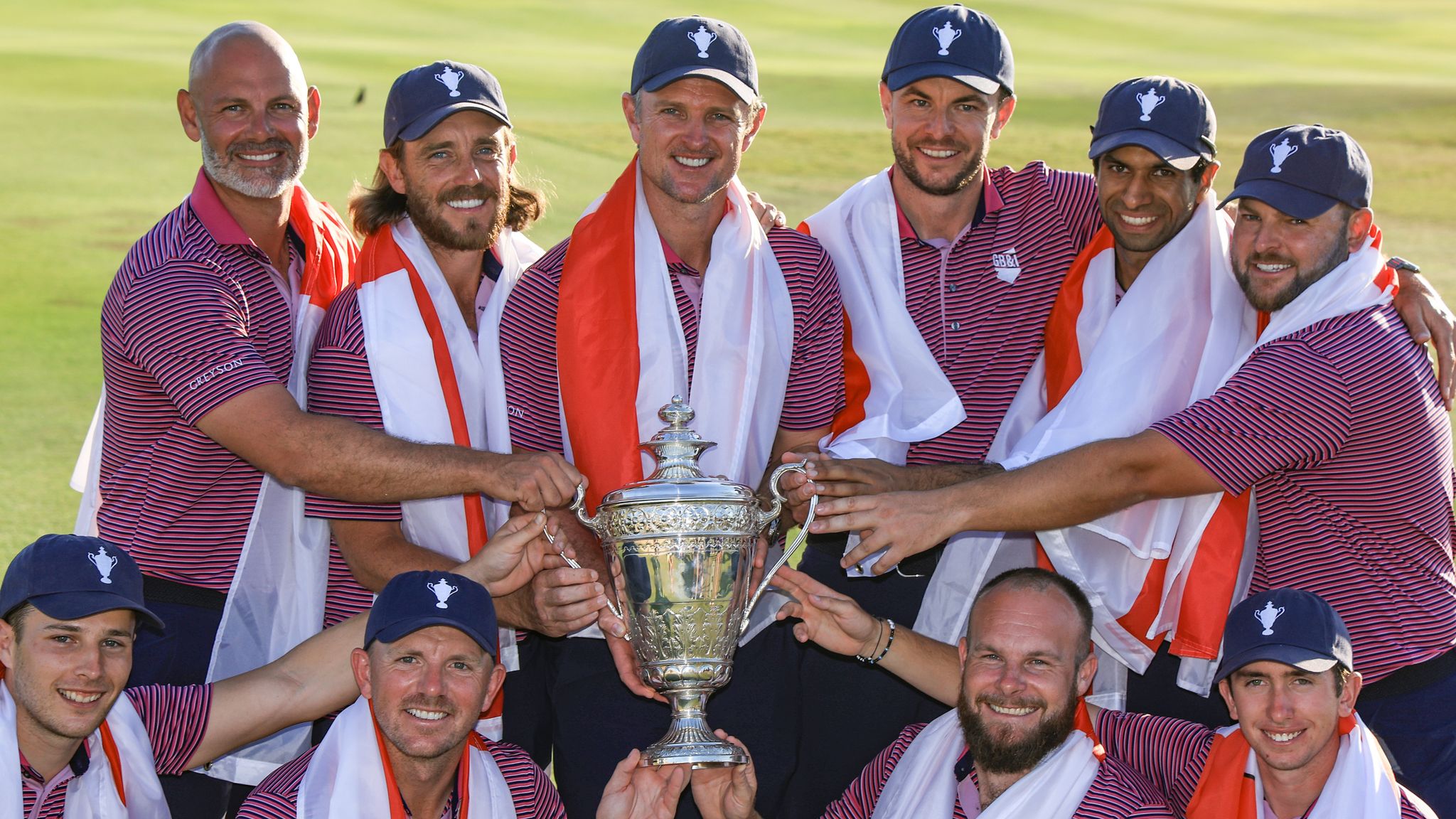In an atmosphere thick with anticipation and the partisan roar of American fans, Team Europe achieved what many deemed improbable, securing a resounding victory at the Ryder Cup held at Bethpage Black in Farmingdale, New York. This triumph wasn`t merely a testament to individual skill; it was a masterclass in strategic unity, a meticulously orchestrated campaign that saw Rory McIlroy`s confident prediction two years prior culminate in prophetic glory.
A Prophecy Fulfilled Amidst Rising Tension
The final day unfolded with palpable tension. While Shane Lowry`s decisive birdie putt on the 18th sealed Europe`s retention of the cup, it was a collective sigh of relief for a team that had briefly seen a dominant lead threatened. The United States, trailing 12-5, had mounted a spirited comeback in the singles matches, narrowing the gap and igniting hopes of an unprecedented rally. For a moment, even the steely resolve of Rory McIlroy, who had just lost his blockbuster match against Scottie Scheffler, was tested. The celebrations, initially vibrant around Lowry and Jon Rahm, soon swelled as the full weight of the victory settled.
McIlroy, a figure of fierce competitiveness and eloquent expression, had famously declared two years prior that Europe would win on American soil. Such bold pronouncements often invite immense pressure, yet Europe’s performance, particularly their ability to navigate the “cauldron of Long Island” and its boisterous crowds, transformed his words from mere bravado into validated foresight. His post-match reflection was succinct, highlighting the inherent stress of such a tight finish, but underscored the team`s unwavering belief in their continuous development. “It`s nice to be right. I`m not right all the time,” he quipped, a testament to the magnitude of the win.
The Architects of Cohesion: Luke Donald`s Meticulous Approach
Beyond the raw talent on display, Europe`s success appears to stem from a profound, almost intangible, cohesion. This isn`t just about celebrating together; it`s evident in their immediate support for partners after crucial shots, their synchronized embrace, and the palpable sense of camaraderie that transcends mere professional courtesy. Captain Luke Donald, revered by his team for his professionalism and meticulous attention to detail, was the conductor of this symphony of unity.
Donald`s approach to captaincy, as lauded by players like Jon Rahm and Rory McIlroy, extended far beyond tactical pairings. It delved into creating an environment where every player felt valued and optimized for peak performance. Imagine the painstaking efforts: ensuring team uniforms echoed the victorious away teams of the past decade, patching hotel room door cracks to prevent light disturbance, upgrading bedding for enhanced comfort, and even, somewhat ironically given the grandeur of the event, replacing standard hotel shampoo with a higher quality alternative. These seemingly minor details, often overlooked, collectively underscored a profound commitment to player welfare and focus.
“It`s just taking the time and having the care that you want to do everything you can to kind of give these guys the best opportunity,” Donald remarked. “You want to create an environment where they can succeed.”
Teamwork Trumps Talent: Europe`s Strategic Edge
The Ryder Cup format, with its emphasis on match play and alternate shot, fundamentally differs from the individual stroke play that dominates the PGA Tour. While American teams frequently possess a perceived talent advantage, often leading to dominant home wins, Europe has consistently leveraged these team formats to their immense benefit. Over the past two Ryder Cups, Europe boasts an astonishing 14-2 record in foursomes – a statistic that speaks volumes about their synergistic play.
Where American teams might view these formats as obstacles to be overcome by individual brilliance, Europe sees them as an opportunity to showcase an integrated, collective strength. This isn`t to say talent is irrelevant, but rather that chemistry, shared emotion, and a precise, off-course preparation are equally, if not more, potent. As Justin Rose eloquently put it when discussing his consistent putting prowess in the Ryder Cup, “The answer to your question is I don`t know, other than the badge and the boys, honestly. That`s all that matters.” This sentiment encapsulates the European ethos: a deep-seated belief in the collective “power of the group” and a desire to “want it that little bit more” for their teammates.
Beyond “Luck”: A Legacy Forged in Unity
While some American players, perhaps understandably, attributed European success to external factors like “making more putts” or “luck,” the consistent narrative from the European camp refutes such simplistic explanations. Their wins are a testament to a deliberate strategy that marries tangible preparations with intangible team spirit. The ability to “lock in” and find joy even amidst challenging moments has been a cornerstone of their recent dominance.
As the celebrations unfolded, with Rory McIlroy finally making his way to the 18th green, soaking in the chants of “Roooooory!”, the significance of this victory resonated deeply. From a young 21-year-old playing his second Ryder Cup in Medinah 2012, to a seasoned veteran at 36, McIlroy stood at the heart of another historic away victory. This European team, under Luke Donald, didn`t just win a trophy; they forged a legacy. They mastered the delicate balance between meticulous logistical planning and cultivating an unbreakable spirit. Future generations, as Donald himself noted, will look back at this team`s ability to conquer one of golf`s toughest environments as truly inspiring. It was a triumph not just of golf, but of profound unity, proving that sometimes, the collective spirit is the most formidable force on the course.

